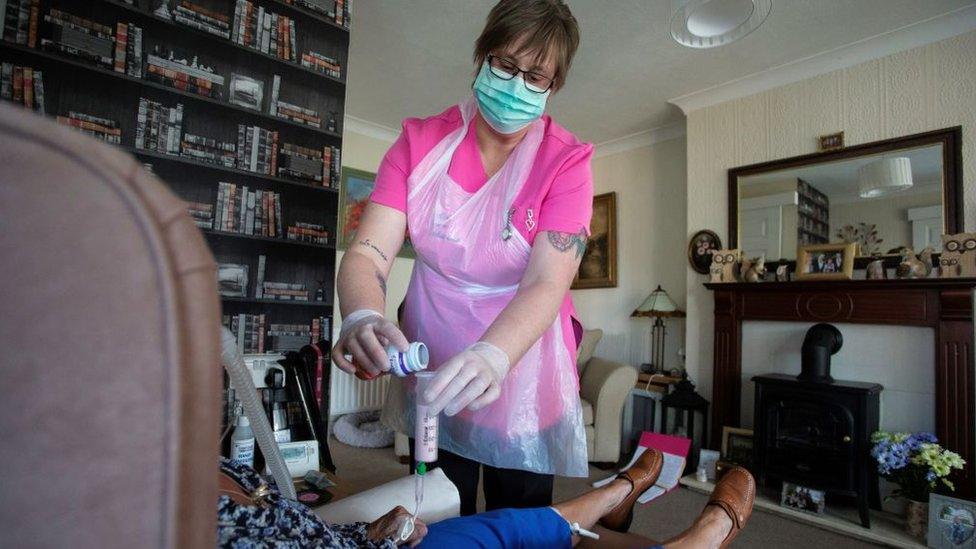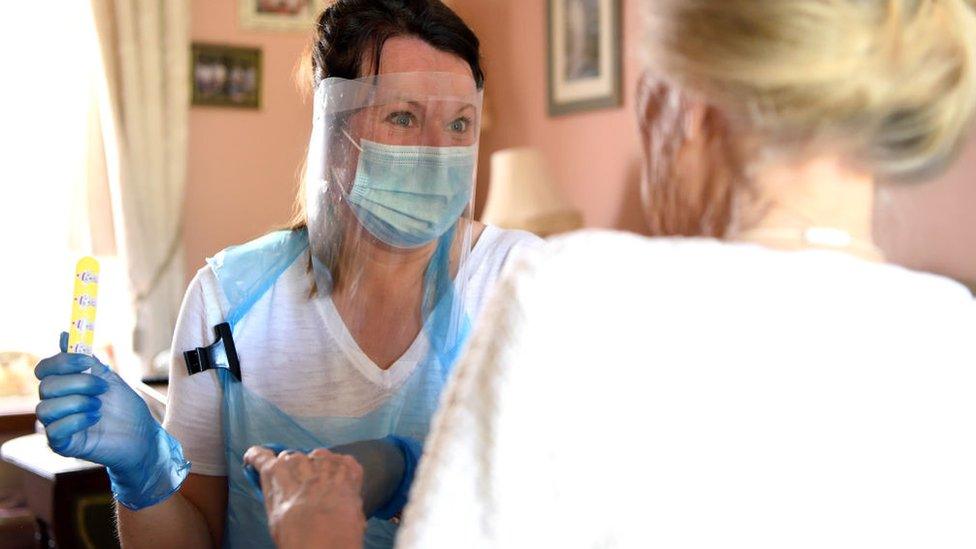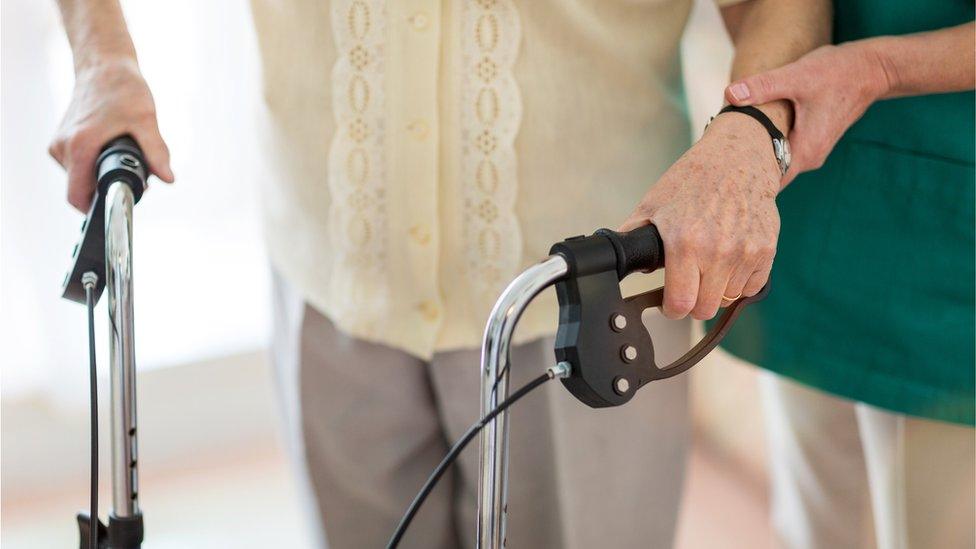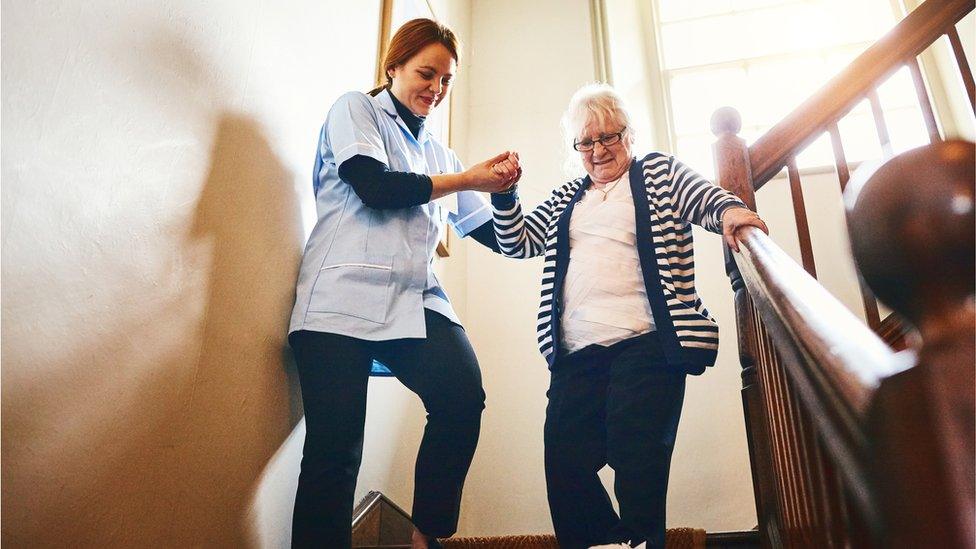Care worker low wages in Wales 'not sustainable'
- Published

Care workers in Wales are underpaid and predominantly women, say researchers
The low wages of social care workers are not sustainable, say researchers.
Fewer than half earn a "real living wage" of £9.30 an hour, with no above-inflation pay rises in care homes for 10 years, according to a Cardiff University report, external.
The authors said the "endemic" low pay has an unequal affect on women, as they make up four of every five care home workers.
The reports calls for wide-ranging reforms of the sector.
It said the coronavirus pandemic had "starkly exposed the vulnerability of the residential care sector".
"The current low levels of remuneration of the workforce does not look sustainable in terms of quality and consistency of care and staff turnover," said Wales Fiscal Analysis researchers at the university's Wales Governance Centre.
They also said rates of pay in care in the UK appear to be lower than other countries.
But the report warned pay rises would have "substantial resource implications" for governments and private care providers.
The Living Wage Foundation, external said people outside London should earn £9.30 an hour, instead of the £8.72 that employers must pay everyone aged over 25 under the national living wage set by the UK government.
Improved pay and conditions are one of four things that deserve attention, said researchers.

The care home sector needs more funding say the report authors
Other recommendations included more funding, an accurate prediction of growing demand, and rethinking the "fragmented" way the system is operated between councils and private companies.
The report also highlighted the role of unpaid carers who look after friends and family. The report said it would cost about £8bn - roughly the size of the entire NHS budget - to pay for the care they provide.
But even before the crisis, ministers were looking for new ways to fund social care, including the possibility of introducing new taxes in the next Senedd term.
Cian Sion, one of the report's authors, said: "It seems inevitable that Wales will have to spend more on social care over the next decade. A national conversation about what the future mix of care provision might be, and who will meet this cost is long overdue."
- Published11 August 2020

- Published26 April 2020
